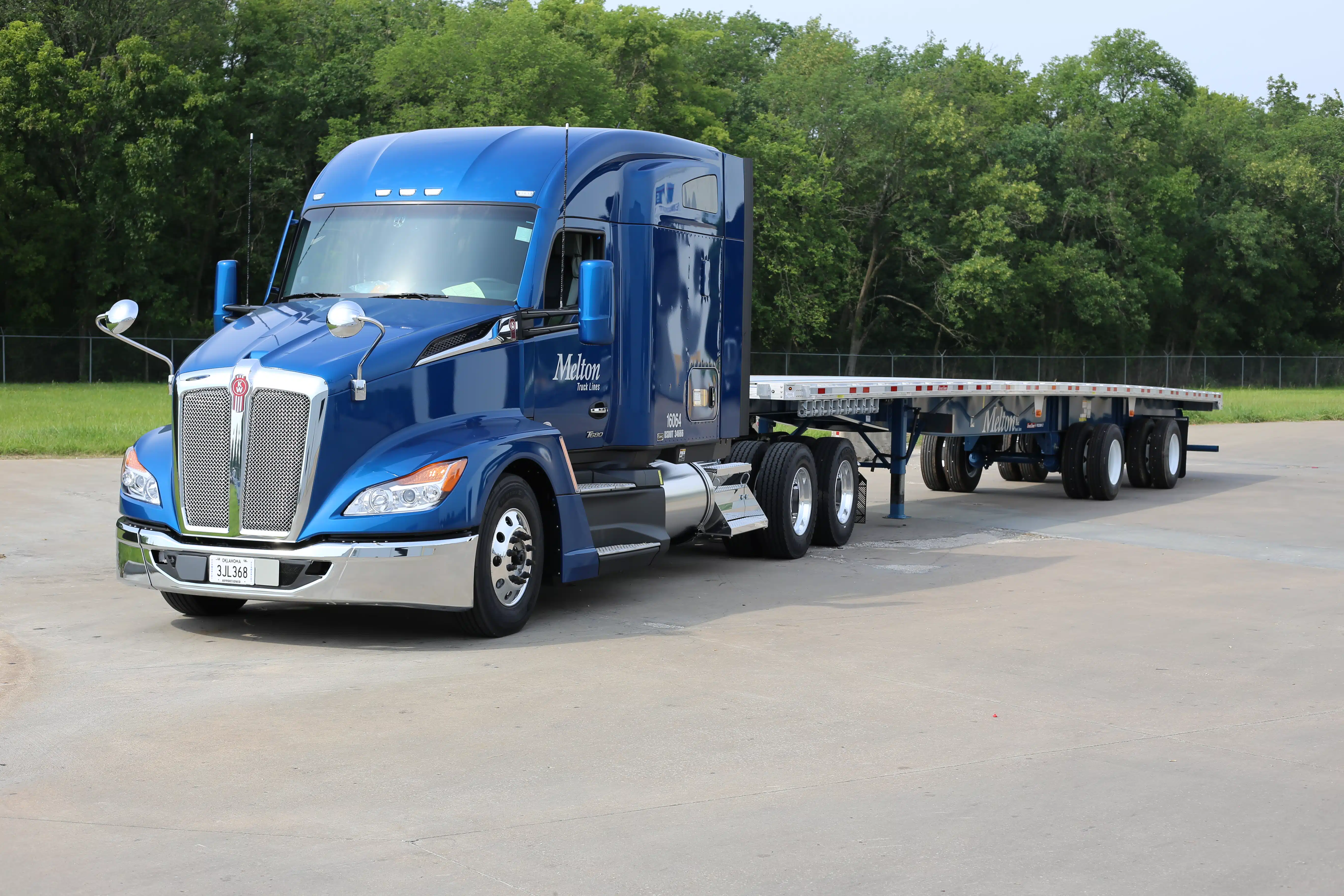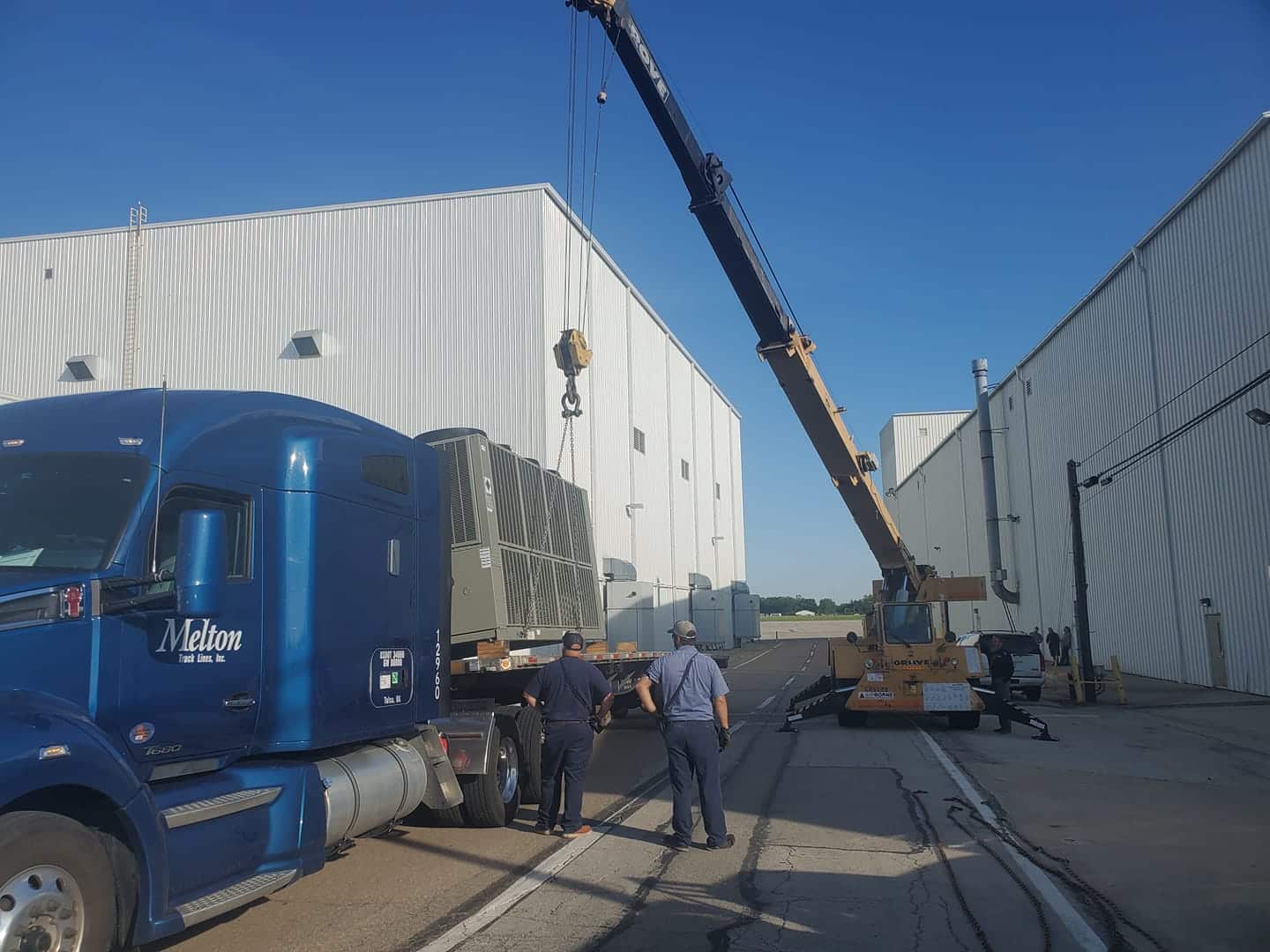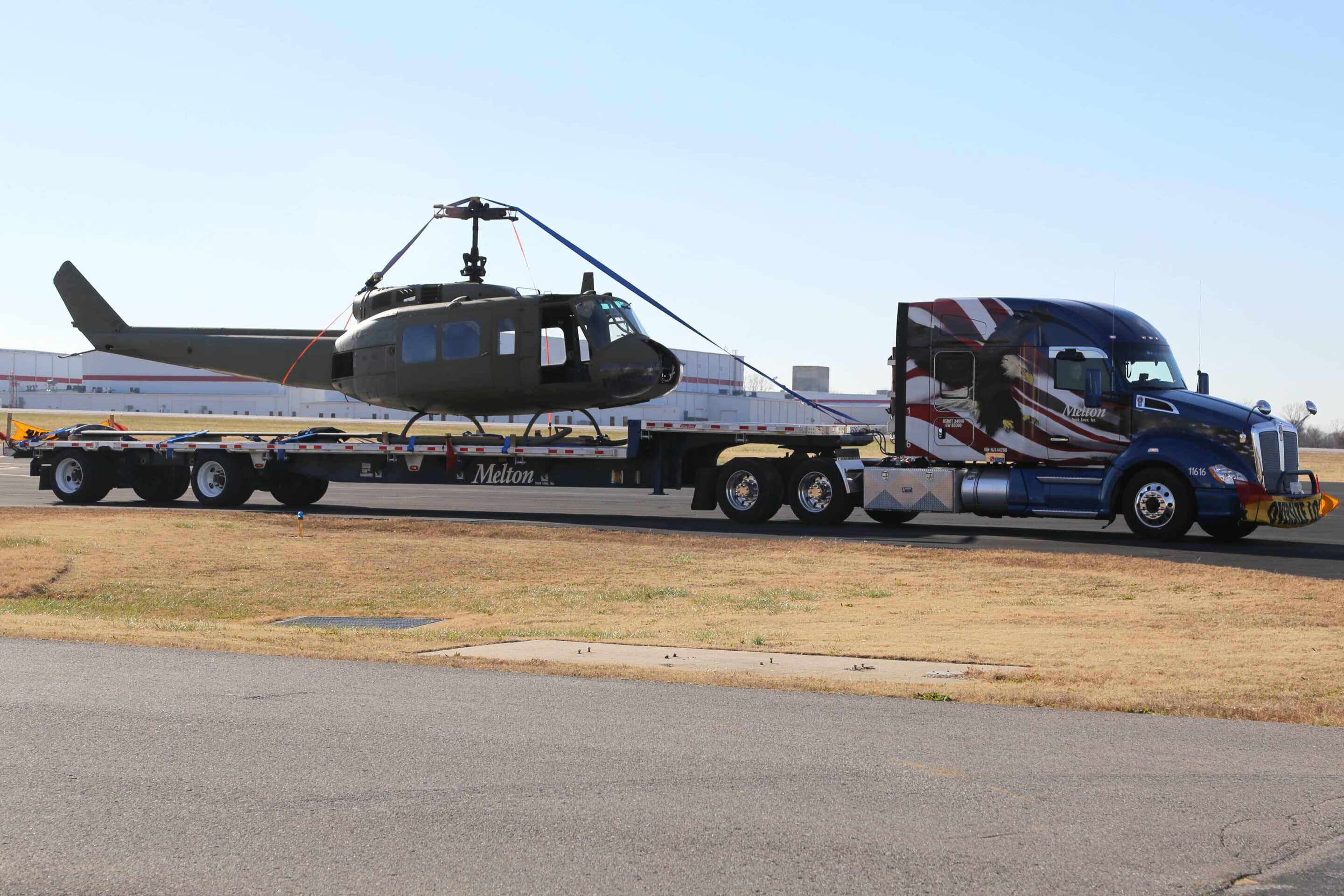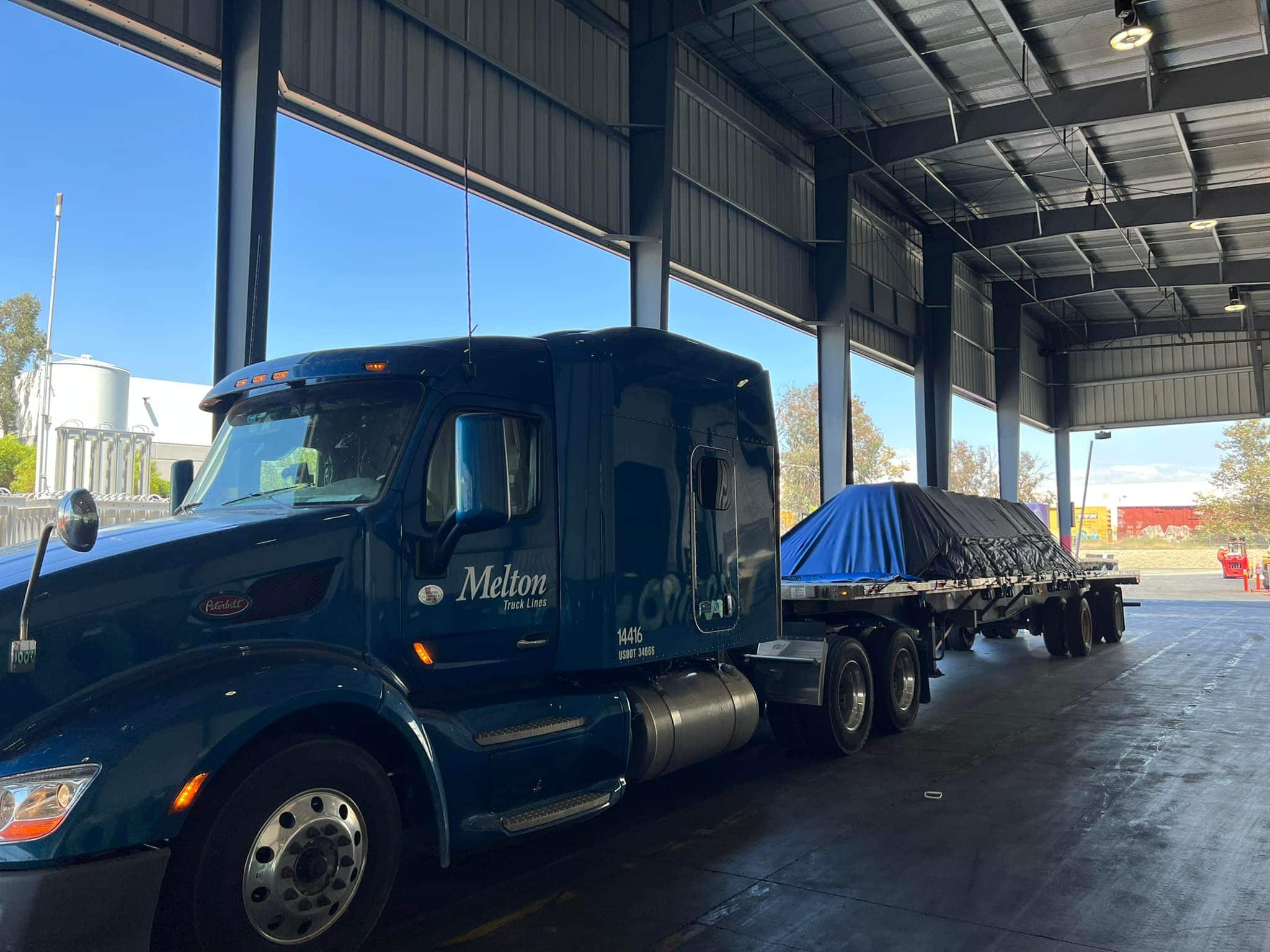
Perks of Flatbed Trucking
There are several different types of trucking you can try out once you have your CDL, each with its own pros and cons to consider. One of the most popular types of trucking is flatbed, which differs from a standard dry van in that the trailer is open and exposed to the elements. But how do you know if flatbed is right for you? In this blog, we’re discussing everything you need to know about flatbed trucking so you can learn the facts and decide if you want to become a flatbed trucker.
What is Flatbed Trucking?
Flat bed hauling involves a truck driver hauling an open trailer that’s more of a platform with no sides or roof, instead of a standard enclosed trailer. This is for cargo that can’t fit into a standard trailer, such as wood, steel, construction equipment, large vehicles, and more. Flatbed truckers are responsible for securing these loads and protecting them from the elements if necessary, making it more involved than many other forms of trucking.
Pros of Flatbed Hauling
- Higher Pay: Learning to secure and tarp loads takes extra skills that might not be needed in other divisions of trucking. For this extra effort, flatbed drivers will often be paid more than the average driver and may receive bonuses for the time it takes to tarp and secure cargo (view Melton’s pay opportunities and bonuses on our truck driver pay page). According to salary.com, the average flatbed truck driver’s salary falls around $61,000 per year, while the average salary for all truck drivers falls around $43,000 per year. There’s a lot of earning potential in both scenarios, but driving flatbed will definitely earn you a higher salary in the long run.
- Staying Active: For most truckers, it’s difficult to find the time to stay active and keep in shape. This is not the case for a flatbed truck driver. Tarps can vary in weight from 65-125 lbs. depending on size and material, which means you’ll be getting a good workout every time you secure a load. This makes flatbedding perfect for the driver who values their physical health.
- Variety of Flatbed Loads: In all lines of work, doing the same thing day in and day out can get tiresome and make you lose interest in your career. Fortunately, this is hardly the case for flatbed drivers. You’ll travel all across America and see new sights, all while securing loads of different shapes and sizes. Our Melton drivers have hauled everything from military helicopters to pieces of a stadium – it’s something new every day!



Cons of Flatbed Hauling
- Heightened Responsibility: It can be nerve-wracking for some to be responsible for something as big as a loaded flatbed trailer. The driver is 100% responsible for properly securing a load so that it doesn’t shift or get damaged along their route, as well as thoroughly checking their truck and trailer to make sure they’re fit to run. You’ll be taught all the skills you need to know during your training program, so as long as you’re attentive and ask for help when needed, you should be well equipped to take on this responsibility.
-
Working Outside: Every type of trucker will have to drive in a variety of weather conditions, from heavy rain to icy roads to intense heat waves. However, flatbed drivers aren’t always protected by the cab and will have to be outside in any conditions for load securement. Make sure to keep a close eye on the weather and come prepared with proper clothing and other items.
-
Hard Work: If you’re looking for an easy job, you should think twice about driving flatbed. It’s hard work with long hours, and takes more skill than other divisions of trucking, and you’ll be much more involved in the process. If you don’t mind or even enjoy putting in extra effort in your work, this may not be a con at all!
Responsibilities of Flatbed Truckers
Your main responsibility is getting cargo from point A to point B safely and efficiently. This includes:
- Securing and tarping loads to appropriate standards
- Planning your routes to ensure you’re getting to your destination in a timely manner while making time for breaks
- Conducting proper pre- and post-trip inspections
- Maintaining your truck and getting maintenance completed when needed
- Adhering to DOT policies and regulations
- Following speed limits, road signs, and otherwise driving safely and attentively
Depending on your company and the certifications you hold, you may also be responsible for hauling special loads that require extra caution such as over dimensional or hazmat cargo. You may also need to keep your passport up to date if you are responsible for transporting loads into Mexico or Canada.
So, Is Driving Flatbed Worth It?
If you’re a detail-oriented driver looking for a driving job that challenges you, pays well, and keeps you active, the answer is YES!
Interested in learning more about flatbed? Check out our new to trucking page for more details about the flatbed trucking jobs Melton offers.
